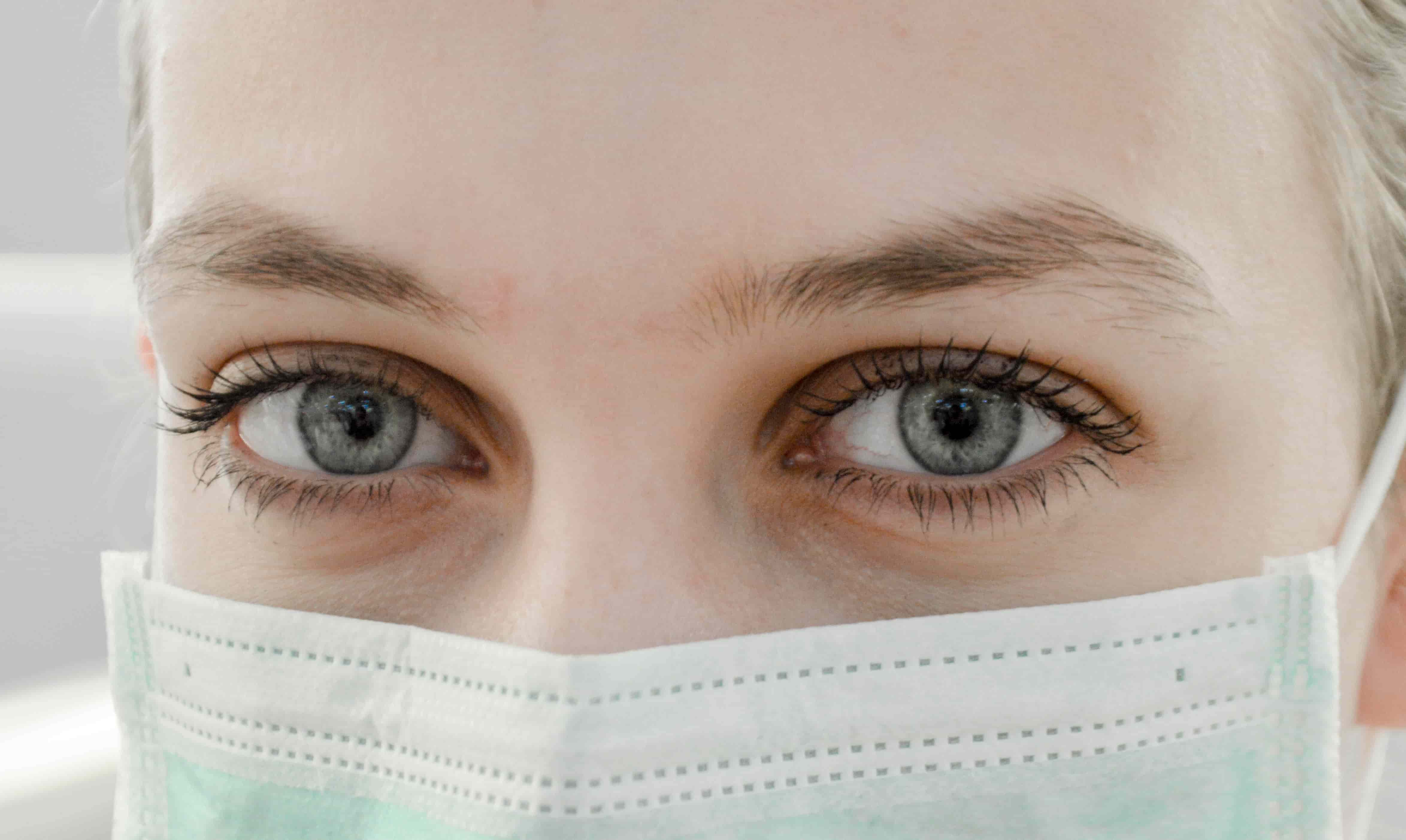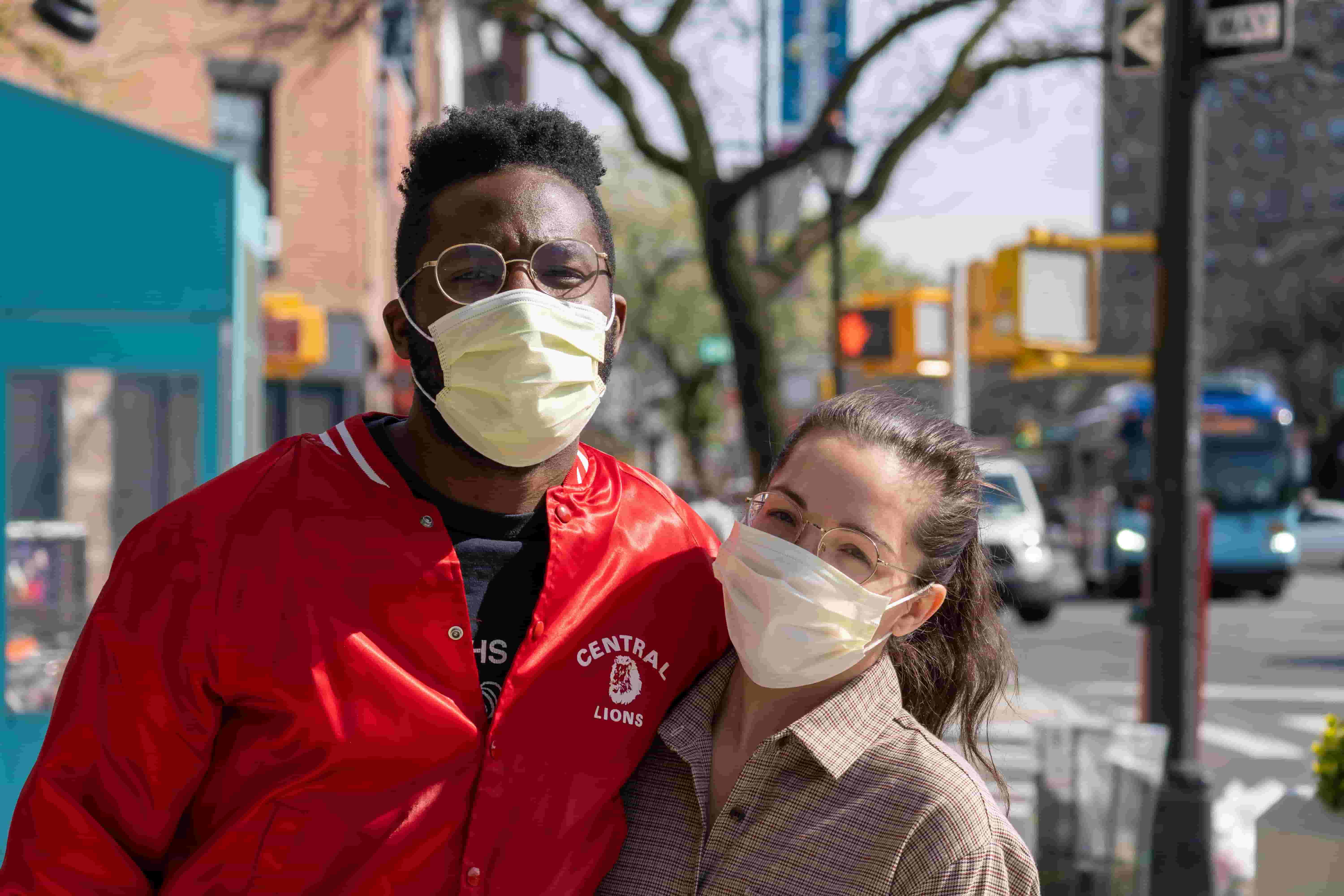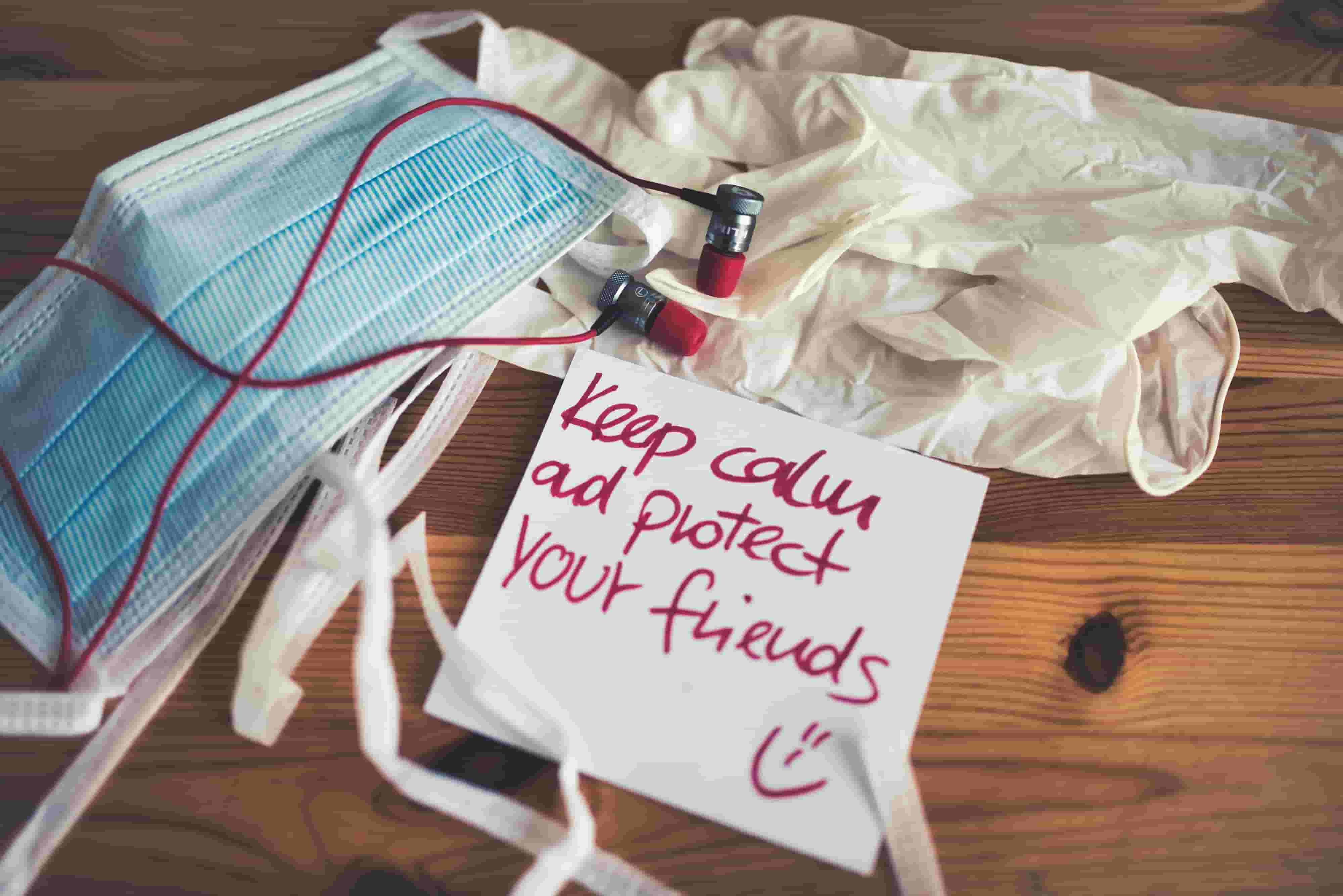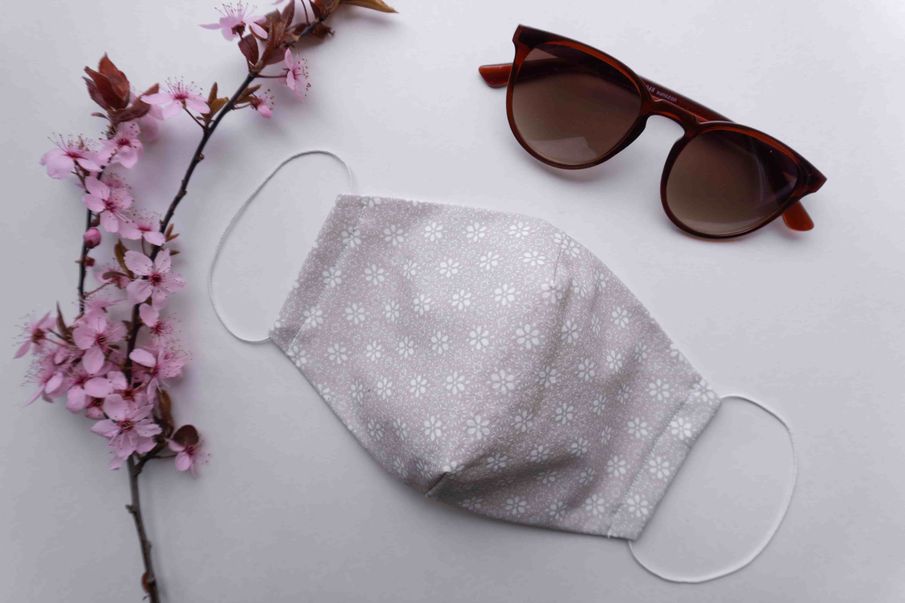If wearing a face mask leaves you feeling anxious, you’re not alone. We share tips on how you can feel calmer and in control whilst wearing a face mask
Face masks. They’ve become a divisive debate over recent months, with neither side willing to give much leeway. While scientists and experts have been sharing their importance and benefits for some time, it’s only now that lockdown has begun to lift that it is coming into law that face masks must be worn in shops from Friday 24th July.
But why is there so much debate and high emotions running around face masks? And why are so many threads on social media and articles alike filled with intolerance and anger from both sides? In places, it feels like we have become focused on arguments between personal freedom VS selfishness or stupidity - whereas the real issues we are really worried about: the safety of loved ones, our own safety, and our anxieties around this uncertain, ever-changing situation, filled with bleak headlines and daily doses of bad to worse news - are becoming drowned out by vitriol.
Whether you experience anxiety around face masks yourself, or are looking to better understand and support a loved one, it’s great that you are seeking help and trying to find a way to manage how you are feeling. Here’s a little bit more info about face masks: why they’re important, why they make some of us so uncomfortable, and what you can do to cope once face coverings become mandatory.

Face masks: why should we be wearing them?
Already in effect in other parts of the UK and EU, England is set to make face masks and coverings compulsory in shops and supermarkets from 24 July. Those who fail to follow the new rules will face up to a £100 fine. But why now?
Introduced to help “give people more confidence to shop safely and enhance protections for those who work in shops” according to Health Secretary Matt Hancock wearing a mask has already been compulsory on public transport and at NHS facilities (including hospitals and GP surgeries) since mid-June. Only children aged 11 and under, and those with certain disabilities will be exempt.
Introduced in part to protect and prevent the spread of COVID-19 amongst the general public, but also to protect retail workers, figures have revealed that the death rates amongst sales and retail assistants is 75% higher amongst men, and 60% higher amongst women than in the general population. Shops will be able to refuse entry to those who are unwilling to wear a facemask, though the chair of the National Police Chiefs’ Council, Martin Hewitt, has said that police should only be involved as a “last resort.” The new regulation will not affect places where it’s impractical to wear a mask, such as in a restaurant, pub, or cafe.

But why now? Well, a growing body of evidence suggests that face masks can help reduce the spread of coronavirus. Studies have shown that the use of face masks can stop respiratory droplets between 20 to 500 micrometres from travelling away from us whilst speaking. Another study found that those infected with the common cold or influenza emitted significantly reduced amounts of these respiratory viruses whilst wearing a mask.
Further studies have looked into the total number of coronavirus deaths across 198 countries, revealing lower death rates amongst those where wearing a face mask was considered a cultural norm or had become government policy. Even in the US, where infection rates are thought to be the highest in the world, it has been found that states where mask mandates have been introduced have led to a slowdown in daily COVID-19 cases.
Shyam Morjaria, medical director at UK Meds, explains more about how face masks help prevent coronovirus.
“When you cough or sneeze, tiny droplets of saliva and mucus are released into the air and if a person has coronavirus, the virus could be contained within these droplets. If these droplets are then inhaled by another person – or land on a surface that is touched and then inhaled by another person – they too could catch the virus.
“This is why wearing a face mask can contribute to protecting yourself and others from COVID-19. The masks create a shield from any infected droplets and protect your respiratory system to varying degrees. The level of protection provided will depend on the mask type that you have.
“It’s important to note that face masks do not guarantee 100% protection from viruses though and you should still follow best hygiene practices, such as hand washing.”
Wearing a face mask can protect both ourselves, and those around us. It’s thought that as many as 80% of cases are mild or asymptomatic - meaning you could be infected without knowing it. By wearing a mask in public, you are helping to protect everyone around you - from fellow shoppers to essential workers who may be unable to stay home.

Why do face masks make some people uncomfortable?
Knowing the health benefits doesn’t necessarily make us feel more comfortable about face masks, as the reasons behind our anxiety or feelings of caution can vary greatly. Some of these reasons can include:
Changing government advice has left people feeling uncertain
On both a country and worldwide scale, we have seen shifts in the advice surrounding wearing a mask. During the early days of the pandemic, many governments warned the public against them. However, this was widely due to a fear that panic-buying masks may leave frontline health workers without the supplies they needed, as well as worry that the presence of a mask may give some people a false sense of security, leading to them ignoring other best practices - such as social distancing, hand washing, avoiding touching your face, and avoiding touching others outside of your household.
Face masks can make communication difficult for those who are hard of hearing or mute
For the deaf community and those who have trouble with their hearing, face masks can present a whole new set of challenges. By masking the individual’s ability to read lips and facial expressions, it can impact some people’s ability to communicate more easily and effectively in public. While some clear face masks have been proposed, with many resorting to homemade face masks due to demand or cost, these have not become something that have been widely introduced.
😷 "After my friends bought the masks, they found the mask helped them a lot."
— Bloomberg QuickTake (@QuickTake) June 14, 2020
Dwi Rahayu began making these transparent face masks to help deaf and mute people communicate during the #coronavirus pandemic in Indonesia. 🎥 @zazein #BersatuLawanCovid19 pic.twitter.com/zqG2Uf4NEs
Some experience feelings of claustrophobia
Phobias can develop at any point during our lifetime, and can be triggered by any number of different factors. Claustrophobia - the fear of confined spaces - can lead some to experience mild to severe symptoms of anxiety and even panic attacks. For some, these feelings can be triggered by wearing a face mask.
Happiful Senior Writer, Kat, shares her own experience of face mask anxiety.
“The first time I wore a face mask was to do our weekly food shop, an activity that has become very stressful since lockdown began. I struggle with anxiety from time to time and found wearing a mask intensified these feelings.
“I felt like I couldn't breathe and got claustrophobic, but I also knew wearing the mask was keeping people safe. Thankfully I managed to slow down my breathing and carry out the shop, but it always feels like a battle when I need to put it on and I will definitely be glad when wearing masks is no longer necessary!”
It’s a visual reminder of the pandemic
Let’s face it: we’ve all needed a break from the news cycle at some point during 2020. Rarely has a day gone past without a new piece of bad news dominating headlines. For some, the physical presence of a face mask can act as an added reminder of all of those worries and fears - but unlike with news headlines and social media, it’s not something they can opt out of or switch off.
Fear surrounding breathing difficulties and oxygen saturation levels
Social media has been rife with people sharing their worries that face masks can expose us to harmful levels of carbon dioxide, depriving our bodies of oxygen. The good news is that there is no evidence of this. However, for those who have read the claims and seen them spreading widely on social media, the fear can still remain.
Healthcare professionals including doctors, surgeons, and nurses wear face coverings for extended periods of time each day. With many fearing that the spread of misinformation may cause more of us to worry about masks and any misconceived dangers, doctors have taken to sharing videos of themselves with and without masks, hooked up to machinery that can monitor their oxygen levels, in an effort to ease our fears.
Masks categorically do not reduce oxygen saturation. This is a lie made up as an excuse by those who believe the pandemic is a hoax and that wearing a mask somehow encroaches on their rights. This is not an issue of freedom.
— Dr Joshua Wolrich (BSc MBBS MRCS) (@drjoshuawolrich) July 9, 2020
/1 pic.twitter.com/R1rJvWj7aw
How can I cope with face mask anxiety?
Focus on your breathing
Breathing exercises can help you to trick your body into a state of relaxation when you are feeling stressed or overwhelmed. Psychotherapist Anne-Marie Alger from Counselling Directory shares five common breathing exercises that you can try right now to help you manage physiological sensations and emotional feelings of anxiety, find your focus, and relax.
“Positive affirmation and deep breathing. This technique is easy to achieve in 60 seconds. It uses deep breathing and a positive affirmation to aid relaxation and reduce anxiety within the mind and body.” Anne-Marie explains.
“Choose your own affirmation to use such as ‘I am at peace’, ‘I am relaxed’ or ‘I am in control.’ Take a few slow, deep breaths. As you breathe in, quietly say the first part of your affirmation to yourself. Pause for three seconds. As you breathe out, quietly say the second part of your affirmation. Repeat this cycle three times, and gradually relax your body, releasing tension.”
As with many skills, breathing techniques can take some practice to allow you to most effectively see the benefits of them, so keep trying. Find out more about affirmations and how they can help you every day.
Increase your knowledge and exposure to decrease your fear
The better we understand something, the less mystery surrounds it. By removing that sense of the unknown, it can help to lessen our fear and anxiety. As explained by the Mental Health Foundation, when we begin to avoid situations or things that scare us, we aren’t able to experience situations where things aren’t as bad (or scary) as we expect them to be. This means we miss opportunities to work out how we can manage our fears and anxiety. Over time, this can lead to unhealthy patterns, and can even worsen how we feel about something.
Keeping a record of how you are feeling, and any specific instances which have triggered feelings of greater (or lesser) anxiety can help you to track any specific causes.
Talk it through with someone
Whether that’s someone you are close to and care about, or it’s an outsider who can help you subjectively work through your worries and fears, speaking about your anxiety can help you to overcome it. Working with a qualified therapist or counsellor can help you to assess how you are feeling, recognise any symptoms, and find ways you can reduce these.
Methods to reduce anxiety, such as cognitive behavioural therapy and mindfulness exercises can help you to gain clarity, recognise triggers, and learn new ways of coping.
There are also some great resources out there to help you learn more about the best ways to safely wear and care for fabric face masks. By learning more, you can begin to regain a sense of control.
To find out more about how to wear fabric and medical face masks safely, check out these great video guides from the World Health Organisation.
Try to create consistent habits
Counselling Directory member and Lead Partner at The Practice, Beverley Hills, explains how consistency can help both adults and children to feel less anxious and form positive habits.
“Getting a child to put on their shoes can sometimes be a battle let alone a face mask, but consistency helps form good habits so with children you might want to think about offering them an incentive like a sticker or more screen time. You can let them decorate their masks or decorate yours, it won’t be long before superhero masks hit the stores!
“For adults, it’s less exciting but once again consistency forms good habits and reminding the adult that there was a time when s/he didn’t like wearing clothes but those are the rules, they soon got used to it! Like with anything new to us, time is the saving grace here.
“When you worry, you probably think of worst-case scenarios. We call this catastrophising. Instead, try thinking of what actually happens most of the time. Explore your anxiety by asking what’s the worst that could happen, what’s the best that could happen and what’s the most likely thing to happen if you do or don’t wear a mask.”
Above all else, Beverley reminds us that wearing a mask could possibly save your life.
It’s important to remember that anxieties and fear aren’t always logical. There may not be a clear reason why we are feeling anxiety - but that doesn’t make it any less real, or any easier for us to cope with. By recognising you are feeling anxious, and looking for a way to tackle that anxiety, you’re already making the first step to changing how you react to that automatic feeling.
To find out more about anxiety, how it can affect you, and what you can do to overcome these feelings, visit Counselling Directory.


Comments